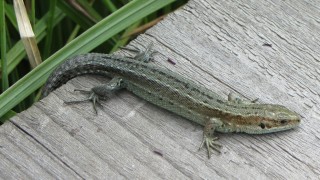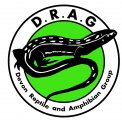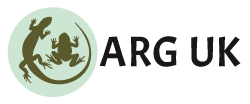About us
About Us
Welcome to the Devon Reptile and Amphibian Group (DRAG) website.

Who are we?
We are a friendly, volunteer led group who have a passion for reptiles and amphibians and a willingness to share this passion, knowledge and experience with others.
We are made up of individuals with a variety of backgrounds and interests, from those with a general interest in the natural world to experienced herpetologists, ecologists and conservationists.
What do we hope to achieve?
Here are some of the group’s key aims and objectives:
- To identify and protect important reptile and amphibian sites in the county of Devon
- To support partner groups and organisations in conserving these sites
- To better understand species distributions, populations and potential negative trends and to help mitigate or reverse those trends
- To promote conservation through education and public engagement
- To collect and submit data to Devon Biodiversity Records Centre (DBRC)
How do we achieve this?
- Through monitoring and surveying of known sites
- Through visiting potential sites of interest
- By working along with landowners and organisations in providing advice and consultations on habitat management and species monitoring
- By encouraging everyone to report sightings of reptiles and amphibians on Record Pool either using the Devon Reptile and Amphibian Group (DRAG) website (under the 'Record a sighting' tab) or by visiting https://www.recordpool.org.uk.
- By holding events and by providing resources that aim to raise awareness and educate people about these amazing animals and their habitats
- By recruiting more members
News
News
Five minutes of your time to protect the Habitats Regulations please!
Hi all,
My colleague in RSPB forwarded this important email to me last week. If you care about our top nature conservation sites please take action now to stop George Osborne's proposals to weaken the laws to protect them. Sites of international wildlife importance in Devon include Braunton Burrows, Exe Estuary, Dawlish Warren, East Devon Pebblebed Heaths, Culm Grasslands, Dartmoor, Plymouth Sound and Estuaries, South Hams, amongst many others. These are home to many rare plants and animals, including sand lizards, great crested newts, dormice, greater horseshoe bats and birds. Many wildlife conservation organisations, including the Amphibian and Reptile Conservation Trust (ARC), the Wildlife Trusts and RSPB have signed up to the Wildlife Link letter below to stop the proposals, see link below. If you want to take action yourself to let George Osborne know what you think of his plans please follow the RSPB campaign links below, it only takes five minutes!
Best wishes
Mabel Cheung
DRAG Publicity Officer
"You are hopefully aware of the risk to the Habitats Regulations, one of the critical pieces of legislation that protects our natural heritage from bad development. George Osborne referred to them as “gold-plated” and a “ridiculous cost on British business” in his autumn budget statement, and there is now a growing movement to review and weaken them.
Well the Chancellor’s spring budget statement will be issued on 21 March, and this is your chance to directly email Mr Osborne to ask him to put the environment at the heart of our economic recovery.
To do this is easy - just go (http://www.rspb.org.uk/savingspecialplaces/index.aspx), fill in your email details, and follow the simple template. It took me just 5 minutes.
If everyone of us took this one single step, imagine what an impact we could have...one powerful team for nature! Spread this to our supporters and colleagues out there, and we will be one big voice for nature.
So please, take 5 minutes to do this now, and 5 minutes to persuade 5 others to do it to. We are all busy, but the stakes have rarely been higher.
Thank you!"
P
"PS: over 30 of you wrote or emailed your MPs before Christmas on this subject, some of you wrote articles in local magazines, and many encouraged friends and family to lobby too. Thank you all, a brilliant effort! And if you want to see the collective response to Defra by Wildlife Link (the partnership of 21 wildlife NGOs), see (http://www.wcl.org.uk/docs/Link_response_to_Nature_Directives_060212.pdf). Once more unto the breach, dear friends..."
DRAG AGM Saturday 10th March Torquay
This years AGM will be held at Living Coasts, Torquay on Saturday 10th March. It will start at 1.30pm with a guided tour of the facility followed by the meeting at 3pm.
There will also be a meeting from 12 – 1pm prior to the tour for those interested in volunteering for this years Great Crested Newt survey programme.
All are welcome!
Nicky Green
Volunteer Toad Patrollers wanted
Opportunity:
One Volunteer Toad Patrol Coordinator (TPC) and several Volunteer Regional Toad Patrol Officers (RO)
Purpose:
To help monitor and conserve breeding toad populations. Spread the word, collect information on local toad sites, set up warning signage, set up and help toad patrols. "Local toad populations are seriously threatened each spring when they cross roads to reach their breeding ponds, often on cold wet nights on country lanes. Mortalities can in some cases lead to entire population losses and are an increasing problem for toads. In order to improve this situation and assist with toad conservation Devon Reptile and Amphibian Group (DRAG) and Devon Wildlife Trust DWT Local Groups are looking for volunteers to help identify key road crossings and protect toad populations".
TPC: will act as main point of contact for sightings and offers of help, and will be supported by a network of other volunteers including Regional Officers who know about toads in their local areas.
RO: will collect local toad info, assist with setup and running of patrols in their areas and liaise with TPC
Skills:
TPC: Good people skills, accurate data handling, use of car to visit sites if necessary. Liaise with and offer assistance to existing toad patrols if required. Start up and organize new toad patrols, willing to work at night, in rain, in rural or urban areas, help carry toads across roads. Good H&S awareness in such situations. Able to coordinate lots of people and data. Write up a report at end of the season. Liaise closely with ROs and DRAG Chair.
RO: Good people skills, accurate data handling, use of car to visit sites if necessary. Liaise with and offer assistance to existing toad patrols if required. Start up and organize new toad patrols, willing to work at night, in rain, in rural or urban areas, help carry toads across roads. Good H&S awareness in such situations. Able to coordinate lots of people and data. Liaise closely with TPC.
Location:
TPC: Devon-wide
RO: local to their homes
Timing:
The toad breeding season, Feb-March each year
Contact:
Nicky Green on email: nicky@green-ecology.co.uk.
Location:
Devon-wide and local
SW ARG Conference summary and seasonal greetings
Hi all,
Thanks to everyone who helped organise and attend the South West ARG Conference!
Although I may be slightly biased, as a helper, speaker and attendee, I felt the day was a success and very enjoyable. I think we can give ourselves a pat on the back! We’ve also had positive feedback from the other attendees too! In the end we had 63 people attending and we managed to raise money on the raffle and the DRAG Xmas cards.
We had round-ups of the year’s activities from DRAG, Avon RAG, Cornwall RAG and Somerset ARG. Everyone has been busy with guided walks, toad patrols and surveys around the region. These were followed by engaging talks on scientific field studies by Vicky Buller and Alex Sams and John Breeds’ slideshow of a lifetime in conservation. Jon Cranfield updated us on 'Make the Adder count' and, after lunch, fielded a discussion of how to raise the profile of reptiles and amphibians. Helen Fearnley highlighted the threats of recreational disturbance on herps; Toby Taylor summed up the smooth snake reintroduction project and David Orchard gave us an insight into the exciting Millennium Ponds Project. If you want further information on any of these talks please get in touch and we can put you in touch with the relevant speaker.
Photos of the event will be posted onto the photo gallery webpages in due course.
Have a great Christmas and New Year from DRAG! See our ecard in the photo gallery. Watch this space for more events and activities in 2012... Looking forward to seeing you then!
Best wishes
Mabel Cheung
Publicity Officer
Devon Reptile and Amphibian Group
South West ARGs Conference on 10th December is now open for bookings!
Resources
Resources
Introduction to Reptile Identification and Surveying
Adder Bites - Helpful Links
Dogs and Adders
Dogs 'n' Adders - Information Leaflet
Snakes in Gardens
Snakes are fascinating creatures and for many, finding one in the garden is a real treat and a memorable experience.
However, for many others this can be a disconcerting and even worrying situation. This can be as a result of misunderstandings often fed by negative and often inaccurate media reports and rumours. Please be assured, though, that there is no reason to worry and that these situations can be resolved fairly easily.
The vast majority of reported snake sightings in gardens turn out to be either a Grass Snake or a Slow worm (a legless lizard which resembles a snake). Both species are harmless and are best left alone.
We only have one venomous snake species, the Adder, which is rarely found in gardens unless your property is situated close to favourable habitat. Even then, the adder is a very shy animal and avoids human activity whenever it can. Again, the best course of action is to leave it alone and allow it to move off when it’s ready. The likelihood is that it is just passing through anyway.
Occasionally, DRAG gets asked about relocating snakes. For all kinds of practical reasons this isn’t something we would do and would actually be the opposite of what our group encourages which is reptile conservation.
The best recommendation we can provide is to learn as much as possible about the reptile you have seen in your garden. We will happily help you identify it and provide related advice such as understanding which features of your garden have likely attracted it in the first place.
Please don’t hesitate to get in touch and send a photo or description of the snake to devonrag@hotmail.com or to our Facebook group at http://www.facebook.com/groups/DevonARG/.
It would really help if you could record your sighting on Record Pool either using the Devon Reptile and Amphibian Group (DRAG) website (under the 'Record a sighting' tab) or by visiting https://www.recordpool.org.uk.
Please remember that reptiles are protected under UK law.
Species Guides
Species Guides
Devon's Reptiles
In the UK we have 6 native reptile species, each of which can be found in Devon.
To find out more about a particular species click on it's name which will then jump to the relevant information.
Adder Vipera berus
Grass Snake (or Barred Grass Snake) Natrix helvetica
Smooth Snake Coronella austriaca
Slow Worm Anguis fragilis
Viviparous (or Common) Lizard Zootoca vivipara
Sand Lizard Lacerta agilis
Devon's Amphibians
In the UK we have 7 native amphibian species, 6 of which can be found in Devon.
To find out more about a particular species click on it's name which will then jump to the relevant information.
Great Crested Newt (Triturus cristatus)
Smooth Newt (Lissotriton vulgaris)
Palmate Newt (Lissotriton helveticus)
Common Toad (Bufo bufo)
Natterjack Toad (Epidalea calamita)
Common Frog (Rana temporaria)
For information on the adder please click on the fact sheet link in blue or you can watch the animated video below.
Grass Snake Natrix helvetica
Tadpoles
We've all seen them right, often in large numbers early in the year in even the smallest bodies of water ..... but what are tadpoles?
Tadpoles are the larval stage in the life cycle of an amphibian. In the UK the tadpoles we most often encounter will belong to the Common frog (Rana temporaria) or Common toad (Bufo Bufo).
Amphibians go through several stages before reaching their adult form. This incredible process is known as metamorphosis. Below is a video showing in detail how this process takes place.
Membership
Membership
Why become a member?
Well, big things start in small ways and becoming a member of the Devon Reptile and Amphibian Group (DRAG) is one step you can take towards protecting the reptiles and amphibians in your local area and beyond.
Whether you’re dropping us a line by email, submitting a photo or participating as a volunteer in a reptile or amphibian survey your contribution is valued all the same. Everything we can do to keep the ‘conversation’ going is great for the reptiles and amphibians of Devon.
The more members that join the greater the potential for activity. Put simply, without members we couldn’t do what we do and it would be great to have you join us.
Membership benefits:
- · Become part of a group of like minded individuals and keep in touch via social media or email
- · Invitations to events, training and volunteering opportunities
- · A quarterly newsletter
- · Opportunities to see and work with elusive and hard to find species
- · Opportunities to learn new skills
- · Gain practical experience in conservation
- · The opportunity to have a positive, lasting impact on Devon’s wildlife
Some of the activities that you will be invited to can include talks by local experts, guided walks, bioblitzes and even species identification and survey skills training.
Opportunities for volunteering could include surveying, habitat management or helping out at nature festivals.
Have a voice in what we do.
We value your feedback and encourage it.
For example:
- · Do you have an idea for an event or training?
- · Is there a site near you that we are unaware of?
Drop us a line and let us know at devonrag@hotmail.com.
How do I join?
If you would like to become a member please send your request by email to devonrag@hotmail.com.
FAQ
- · Question: How much does membership cost?
Answer: Membership is free to join.
- · Question: How long will my membership last?
Answer: Currently, membership is on a rolling annual basis.
- · Question: Do I need special knowledge, qualifications or experience to become a member?
Answer: No. There are no prerequisites, nor is there any minimum level of commitment required.
- · Question: Can I be a member but not volunteer?
Answer: Yes. Whilst volunteering makes a big difference to what we do, we totally understand that not everyone’s circumstances allow for it.
- · Question: How do I cancel my membership?
Answer: You can cancel your membership at any time by sending your request to devonrag@hotmail.com.
Photo gallery
Photo Gallery
Contact us
Contact Us
If you want to join DRAG and our email group, or have a general query, please contact a member of DRAG admin:
Please be patient with us, this email address is not checked every day!
Upcoming Events
Upcoming events will be listed here.
Latest News
- A tale of six lizards
25/07/2021 1:49 pm - Upcoming Talk
15/02/2016 3:22 pm - Reptile Training Oppourtunity
28/04/2014 9:40 am - DRAG great crested newt training courses delivers the goods
23/05/2013 10:46 pm - Sand lizard summary and pics
09/05/2013 10:23 pm
© Devon Reptile & Amphibian Group (DRAG)
Website hits: 71298
View All | Find out how to get a mini-website for your ARG
© ARG UK Local Groups mini-websites 2025
Wind powered websites by Aye-aye Design.

